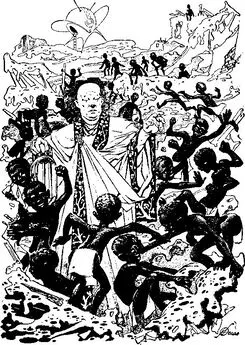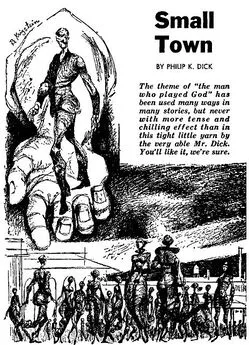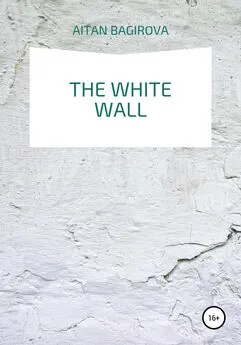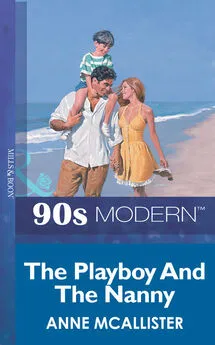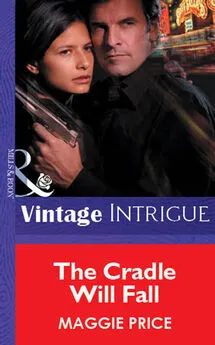Philip Dick - The Turning Wheel
- Название:The Turning Wheel
- Автор:
- Жанр:
- Издательство:неизвестно
- Год:неизвестен
- ISBN:нет данных
- Рейтинг:
- Избранное:Добавить в избранное
-
Отзывы:
-
Ваша оценка:
Philip Dick - The Turning Wheel краткое содержание
or might the great old culture be superimposed upon what was left of western technology?
The Turning Wheel - читать онлайн бесплатно полную версию (весь текст целиком)
Интервал:
Закладка:
The Turning Wheel
by PHILIP K. DICK
BARD CHAI said thoughtfully, "Cults." He examined a tape- report grinding from the receptor. The receptor was rusty and unoiled; it whined piercingly and sent up an acrid wisp of smoke. Chai shut it off as its pitted surface began to heat ugly red. Presently he finished with the tape and tossed it with a heap of refuse jamming the mouth of a disposal slot.
"What about cults?" Bard Sung-wu asked faintly. He brought himself back with an effort, and forced a smile of interest on his plump olive-yellow lace. 'You were saying?"
"Any stable society is menaced by cults; our society is no exception.’’ Chai rubbed his finely-tapered fingers together reflectively. ’Certain lower strata are axiomatically dissatisfied. Their hearts burn with envy of those the wheel has placed above them; in secret they form fanatic, rebellious bands. They meet in the dark of the night; they insidiously express inversions of accepted norms; they delight in flaunting basic mores and customs.”
"Ugh," Sung-wu agreed. "I mean,” he explained quickly, "it seems incredible people could practice such fanatic and disgusting rites.” He got nervously to his feet. "I must go, if it’s permitted.”
"Wait,” snapped Chai. "You are familiar with the Detroit area?” Uneasily, Sung-wu nodded. "Very slightly.”
With characteristic vigor, Chai made his decision. "I’m sending you; investigate and make a blue-slip report. If this group is dangerous, the Holy Arm should know. It’s of the worst elements—the Techno class.” He made a wry face. "Caucasians, hulking, hairy things. We'll give you six months in Spain, on your return; you can poke over ruins of abandoned cities.”
"Caucasians!” Sung-wu exclaimed, his face turning green. "But I haven’t been well; please, if somebody else could go—”
"You, perhaps, hold to the Broken Feather theory?" Chai raised an eyebrow. "An amazing philologist, Broken Feather; I took partial instruction from him. He held, you know, the Caucasian to be descended of Neanderthal stock. Their extreme size, thick body hair, their general brutish cast, reveal an innate inability to comprehend anything but a purely animalistic horizontal; proselytism is a waste of time."
He affixed the younger man with a stern eye. "I wouldn’t send you, if I didn’t have unusual faith in your devotion.”
Sung-wu fingered his beads miserably. "Elron be praised," he muttered; "you arc too kind."
SUNG-WU slid into a lift and was raised, amid great groans and whirrings and false stops, to the top level of the Central Chamber building. He hurried down a corridor dimly lit by occasional yellow bulbs. A moment later he approached the doors of the scanning offices and flashed his identification at the robot guard. "Is Bard Fei-p’ang within?" he inquired.
"Verily," the robot answered, stepping aside.
Sung-Wu entered the offices, bypassed the rows of rusted, discarded machines, and entered the still-functioning wing. He located his brother-in-law, hunched over some graphs at one of the desks, laboriously copying material by hand. "Clearness be with you," Sung-wu murmured.
Fei-p’ang glanced up in annoyance. "I told you not to come again: if the Arm finds out I'm letting you use the scanner for a personal plot, they’ll stretch me on the rack."
"Gently," Sung-wu murmured, his hand on his relation’s shoulder. "This is the last time. I'm going away; one more look, a final look." His olive face took on a pleading, piteous cast. "The turn comes for me very soon; this will be our last conversation.”
Sung-wu’s piteous look hardened into cunning. "You wouldn't want it on your soul; no restitution will be possible at this late date.” Fei-p’ang snorted. "All right; but for Elron’s sake, do it quickly.” Sung-wu hurried to the mother-scanner and seated himself in the rickety basket. He snapped on the controls, clamped his forehead to the viewpiece, inserted his identity tab, and set the space-time finger into motion. Slowly, reluctantly, the ancient mechanism coughed into life and began tracing his personal tab along the future track.
Sung-wu's hands shook; his body trembled; sweat dripped from his neck, as he saw himself scampering in miniature. Poor Sung-wu, he thought wretchedly. The mite of a thing hurried about its duties; this was but eight months hence. Harried and beset, it performed its tasks —and then, in a subsequent continuum, fell down and died.
Sung-wu removed his eyes from the viewpiece and waited for his pulse to 'slow. He could stand that part, watching the moment of death; it was what came next that was too jangling for him.
He breathed a silent prayer. Had he fasted enough? In the four-day purge and self-flagellation, he had used the whip with metal points, the heaviest possible. He had given away all his money; he had smashed a lovely vase his mother had left him, a treasured heirloom; he had rolled in the filth and mud in the center of town. Hundreds had seen him. Now, surely, all this was enough. But time was so short!
Faint courage stirring, he sat up and again put his eyes to the viewpiece. He was shaking with terror. What if it hadn't changed? What if his mortification weren't enough? He spun the controls, sending the finger tracing his time-track past the moment of death.
SUNG-WU shrieked and scrambled back in horror. His future was the same, exactly the same; there had been no change at all. His guilt had been too great to be washed away in such short a time; it would take ages—and he didn’t have ages.
He left the scanner and passed by his brother-in-law. "Thanks,” he muttered shakily.
For once, a measure of compassion touched Fei-p’ang’s efficient brown features. "Bad news? The next turn brings an unfortunate manifestation?”
"Bad scarcely describes it."
Fei-p'ang's pity turned to righteous rebuke. "Who do you have to blame but yourself?" he demanded sternly. "You know your conduct in this manifestation determines the next; if you look forward to a future life as a lower animal, it should make you glance over your behavior and repent your wrongs. The cosmic law that governs us is impartial. It is true justice: cause and effect; what you do determines what you next become—there can be no blame and no sorrow. There can be only understanding and repentance.” His curiosity overcame him. "What is it? A snake? A squirrel?"
"It's no affair of yours,” Sung-wu said, as he moved unhappily toward the exit doors.
"I'll look myself!"
"Go ahead.” Sung-wu pushed moodily out into the hall. He was dazed with despair: it hadn’t changed; it was still the same.
In eight months he would die, stricken by one of the numerous plagues that swept over the inhabited parts of the world. He would become feverish, break out with red spots, turn and twist in an anguish of delirium. His bowels would drop out; his flesh would waste away; his eyes would roll up; and after an interminable time of suffering, he would die. His body would lie in a mass heap, with hundreds of others—a whole streetful of dead, to be carted away by one of the robot sweepers, happily immune. His mortal remains would be burned in a common rubbish incinerator at the outskirts of the city.

Meanwhile, the eternal spark, Sung-wu’s divine soul, would hurry from this space-time manifestation to the next in order. But it would not rise; it would sink; he had watched its descent on the scanner many times. There was always the same hideous picture—a sight beyond endurance—of his soul, as it plummeted down like a stone, into one of the lowest continua, a sink-hole of a manifestation at the very bottom of the ladder.
He had sinned. In his youth, Sung-wu had got mixed up with a black-eyed wench with long flowing hair, a glittering waterfall down her back and shoulders. Inviting red lips, plump breasts, hips that undulated and beckoned unmistakably. She was the wife of a friend, from the Warrior class, but he had taken her as his mistress; he had been certain time remained to rectify his venality.
But he was wrong: the wheel was soon to turn for him. The plague—not enough time to fast and pray and do good works. He was determined to go down, straight down to a wallowing, foul- aired planet in a stinking red-sun system, an ancient pit of filth and decay and unending slime—a jungle world of the lowest type.
In it, he would be a shiny-winged fly, a great blue-bottomed, buzzing carrion-eater that hummed and guzzled and crawled through the rotting carcasses of great lizards, slain in combat.
From this swamp, this pest-ridden planet in a diseased, contaminated system, he would have to rise painfully up the endless rungs of the cosmic ladder he had already climbed. It had taken eons to climb this far, to the level of a human being on the planet Earth, in the bright yellow Sol system; now he would have to do it all over again.
CHAI BEAMED, "Elron be with you,” as the corroded observation ship was checked by the robot crew, and finally okayed for limited flight. Sung-wu slowly entered the ship and seated himself at what remained of the controls. He waved listlessly, then slammed the lock and bolted it by hand.
As the ship limped into the late afternoon sky, he reluctantly consulted the reports and records Chai had transferred to him.
Ihe Tinkerists were a small cult; they claimed only a few hundred members, all drawn from the Techno class, which was the most despised of the social castes. The Bards, of course, were at the top; they were the teachers of society, the holy men who guided man to clearness. Then the Poets; they turned into saga the great legends of Elron Hu, who lived (according to legend) in the hideous days of the Time of Madness. Below the Poets were the Artists; then the Musicians; then the Workers, who supervised the robot crews. After them the Businessmen, the Warriors, the Farmers, and finally, at the bottom, the Technos.
Most of the Technos were Caucasians—immense white-skinned things, incredibly hairy, like apes; their resemblance to the great apes was striking. Perhaps Broken Feather was right; perhaps they did have Neanderthal blood and were outside the possibility of clearness. Sung-wu had always considered himself an anti-racist; he disliked those who maintained the Caucasians were a race apart. Extremists believed eternal damage would result to the species if the Caucasians were allowed to intermarry.
In any case, the problem was academic; no decent, self-respecting woman of the higher classes—of Indian or Mongolian, or Bantu stock—w'ould allow herself to be approached by a Cauc.
Below his ship, the barren countryside spread out, ugly and bleak. Great red spots that hadn’t yet been overgrown, and slag surfaces were still visible—but by this time most ruins were covered by soil and crab grass. He could see men and robots farming; villages, countless tiny brown circles in the green fields; occasional ruins of ancient cities—gaping sores like blind mouths, eternally open to the sky. They would never close, not now.
Ahead was the Detroit area, named, so it ran, for some now-forgotten spiritual leader. There were more villages, here. Off to hi* left, the leaden surface of a body of water, a lake of some kind. Beyond that—only Elron knew. No one went that far; there was n« human life there, only wild animals and deformed things spawned from radiation infestation still lying heavy in the North.
He dropped his ship down. An open field lay to his right; a robot farmer was plowing with a metal hook welded to its waist, a section torn off some discarded machine. It stopped dragging the hook and gazed up in amazement, as Sung-wu landed the ship awkwardly and bumped to a halt.
Читать дальшеИнтервал:
Закладка:
